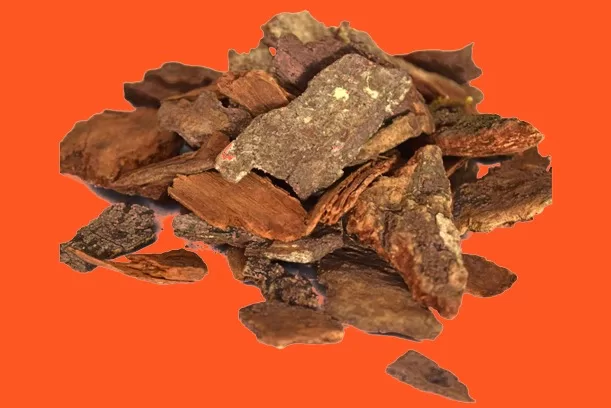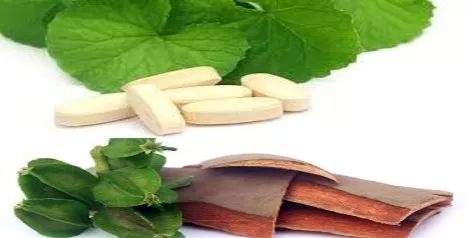Arjuna, or Terminalia arjuna in its botanical name, is the most well-known herb in use right now. It has been used medicinally for thousands of years As the “father of medicine,” “Acharya Charaka” lists trees that are good for dental health and oral hygiene, and “Acharya Charaka” mentions “Arjuna.” The Ayurvedic classics describe how Arjuna bark can be used to treat asthma, cough, ulcers, skin problems, fractures, and more with its cooling, astringent, cardio-tonic, Aphrodisiac, and other properties.

Arjuna- History and facts
In ancient India, arjuna was used as a remedy for heart disease. References to this use can be found in texts dating back to 1500 BCE. Later, in medieval times, arjuna became known as a treatment for venereal diseases such as syphilis and gonorrhea due to its ability to boost the immune system and fight off pathogens.
The modern era has seen new applications of arjuna bark. Researchers have investigated its potential benefits for treating conditions including hypertension, angina pectoris, chronic kidney failure, diabetes, and hypercholesterolemia. Although more research is needed, these findings suggest that the active ingredients in arjuna may offer therapeutic options for managing common health issues.
Arjuna Tree and Properties
The arjuna, or Arjun, is a regal deciduous tree that, for centuries, has been prized for its wood and medicinal virtues. It may grow to a height of 100 feet. Arjun is a huge, long-rooted, evergreen tree that loses its leaves in the winter. The maximum height of this tree is between 70 and 85 feet. It features smooth, grey bark, golden blooms, and conical, spiky leaves. The fruit is glabrous, fibrous, woody, and only a few centimeters long; it has five hard wings and a number of curving veins. The undersides of the leaves are a pale brown, while the tops are a drab green. Arjuna flowers bloom throughout the months of March to June, while the fruit matures in the months of September and November.
Tannins, glycosides, flavonoids, etc. are only a few of the active components found in Arjuna, all of which contribute to the plant’s many beneficial effects. While most Nighantus use Kakubha as a synonym for Arjuna, Eastside Writers sees them as two distinct substances. In this post, we’ve focused on expanding your understanding of its many potential applications beyond only improving your heart health. The many facets and benefits of this natural wonder are mostly unknown to humankind.
In addition to Arjuna, India is home to two other species of Terminalia trees: Terminalia chebula and Terminalia Billerica. Small clusters of white or yellow flowers sit atop the cone-shaped leaves of this plant, which is native to the wet, swampy sub-Himalayan regions of India and Sri Lanka. As the arjuna tree’s bark is highly reflective of light, the word “arjuna” can also be translated as “bright,” “white,” or “shining” in Sanskrit.
Most people want the red inner bark, which is revered as a heart tonic and is similar to hawthorn in European herbalism. The mature trees are plucked annually for their thick, white to pinkish-gray outer bark. Time for the tree to heal and renew its bark is essential for harvesting in a sustainable manner.
Arjuna – The Hindu mythological name
The Arjuna tree has long been associated with the hero Arjuna from the epic Mahābhārata in Hindu mythology. The name “Arjuna” is widely recognized as that of the main protagonist of Hindu mythology’s Mahabharata. In honor of the mythological figure who gave courage, bravery, and protection to his family in battle, the arjuna tree has traditionally been known as the “heart tree.” This name dates back hundreds of years.
According to legend, Arjuna achieved great feats using the divine weapons he obtained by pleasing Shiva and Parvati, his gods. When Arjuna performed severe penance at the source of the Ganges river, he received Pashupatastra from Lord Shiva – the weapon from which there is no escape in battle. So devout was Arjuna towards his gods that they showered him with boons. He attained Indrasena, the chariot of the king of heaven; Varunastra, the power over water and rainfall; Vaishnavasta, the spear of Vishnu himself; Brahmadand, the staff which created all things, destroyed them too; Kaumodaki, the mace of the powerful demon form of the goddess Durga; Parashu, the axe of Bhima who fought many battles against kings and demons; and finally Koumodaki, Vishnu’s discus weapon. As he emerged victorious in every war, Arjuna established an unprecedented reputation throughout the land for his invincibility in battle.
After gaining sovereignty over the whole earth in his one life of Dwapara Yuga by the order of Krishna, King Jarasandha had built a towering flagstaff, casting aside all other royal ensigns of conquered kingdoms. He then declared to his vassals that whosoever broke the standard would become king of all the world after the death of himself and his son Sahadeva, and he furthermore proclaimed throughout the entire land that he alone could accomplish this deed. All were afraid to face the fearsome Jarasandha. But Arjuna stepped forward without hesitation and fulfilled the prophecy, becoming King of Kings, Lord Paramount, even though he did not wish to accept the title.
It is believed that the hero shot a flowering branch of the Arjuna tree into the sky to create the cosmic wheel, Sudarsana Chakra, during a test imposed upon him by the gods. Even today, the Arjuna tree represents the ideal archer and symbolizes achievement through devotion to higher powers. Thus the name Arjun
Some Interesting Facts about Arjuna

In India, The Arjuna tree is considered to be one of the most devout and holy trees. During religious ceremonies, the petals and leaves of this tree’s blooms and leaves are utilized as offerings to Ganesh and Lord Vishnu. This herb has been employed in Ayurvedic preparations since ancient times due to the many different medicinal characteristics it possesses.
Arjuna is a well-known tonic for the heart and circulatory system. It does its work on the heart and the structures linked with it, such as the blood veins that branch out from the heart, and it helps these organs and tissues perform more efficiently and in concert with one another.
Because, as is common knowledge, stress has established itself as such an unwelcome fixture in our lives in this day and age, it is next to impossible to purge our bodies of its effects. In fact, the majority of us have figured out how to live with it. In the fight against cardiac diseases that stress might cause, Arjuna’s special effect on the heart is advantageous. Additionally, it has a very beneficial influence on the insulin hormone, which is helpful to diabetic individuals.
In the grand scheme of things, it is also a very good antioxidant for the body and can help slow down the changes in the body that are associated with aging. Arjunic acid, Tannins, Arjunetin, Arjunic and Arjunolic acid, Arjunones, Betullinic acid, ellagic acid, Arjun glycosides 1 and 2, and Tannins are some of the key chemical contents that contribute to this herb’s outstanding characteristics.
Terminalia, or Arjuna , is one of the most recognized Ayurvedic herbs, and for good reason. How about we talk about some advantages?
1. Good for Your Heart
Arjuna provides multiple avenues of cardiac therapy. The first benefit is that it ensures the arteries and veins are functioning as they should. Second, it aids in reducing blood pressure, making it easier for patients to keep their readings where they should be.
It also improves cardiac muscle strength. Arjuna bark contains antioxidant components like Tannins and glycosides, which prevent free radical damage to the heart and blood vessels.
The modern scientific consensus is that Arjuna, as a cardiotonic that strengthens heart muscles, may be useful in the treatment of cardiovascular illness. Arjuna bark contains antioxidant components like Tannins and glycosides, which prevent free radical damage to the heart and blood vessels. It’s ability to remove plaque and relax blood vessels both contribute to better circulation. Therefore, it is useful for controlling heart conditions like hypertension, arrhythmias, and palpitations.
According to Ayurvedic medicine, Arjuna can reduce the risk of heart disease and enhance the heart’s ability to pump blood. It’s also good for keeping your heart rate and blood pressure in check. Its Hrdya (cardiac tonic) quality is to blame for this.
A typical dose of Arjuna kwath is 4–8 tablespoons. Dilute it with an equal amount of milk or water. To lower cholesterol and protect your heart, drink once or twice a day after meals.
2. It’s a potent antioxidant
Free radicals are created during the chemical reaction that allows our body to generate energy. External stressors like the sun, tobacco smoke, and environmental pollution can also lead to the formation of these free radicals. Cancer and cardiovascular disease can result from oxidative stress, which free radicals cause. Arjuna is an effective free-radical scavenger, greatly lowering their numbers. Like vitamin E, it acts as an antioxidant.
Arjuna possesses potent antioxidant properties. Antioxidants are substances that help neutralize harmful free radicals in the body, thus protecting cells from oxidative damage. Arjuna’s antioxidant activity is attributed to the presence of various bioactive compounds, including flavonoids, tannins, and glycosides.
Here’s how Arjuna acts as a potent antioxidant:
Scavenging Free Radicals: Arjuna contains antioxidant compounds that have the ability to scavenge and neutralize free radicals. Free radicals are unstable molecules that can cause oxidative stress and damage to cells, DNA, and proteins. By neutralizing these free radicals, Arjuna helps prevent cellular damage and supports overall cellular health.
Protecting Against Oxidative Stress: Oxidative stress occurs when there is an imbalance between the production of free radicals and the body’s ability to neutralize them. Factors such as environmental pollutants, radiation, a poor diet, and stress contribute to oxidative stress. Arjuna’s antioxidant activity helps reduce oxidative stress by inhibiting the oxidation of molecules and preventing cellular damage.
Enhancing Antioxidant Enzyme Activity: Arjuna has been found to enhance the activity of endogenous antioxidant enzymes, such as superoxide dismutase (SOD), catalase, and glutathione peroxidase. These enzymes play a crucial role in the body’s defense against oxidative damage. By increasing their activity, Arjuna strengthens the body’s antioxidant defense system, leading to enhanced protection against oxidative stress.
Lipid Peroxidation Inhibition: Lipid peroxidation is a process in which free radicals attack and damage lipids (fats) in cell membranes. This process can lead to cell dysfunction and inflammation. Arjuna’s antioxidant compounds help inhibit lipid peroxidation by neutralizing free radicals and protecting cell membranes from oxidative damage. By preventing lipid peroxidation, Arjuna helps maintain the integrity and function of cell membranes.
Arjuna’s potent antioxidant properties make it a valuable herb for combating oxidative stress, protecting cells from damage, and promoting overall well-being. However, it’s important to note that while it can contribute to antioxidant defense, it is just one part of a comprehensive approach to maintaining a healthy lifestyle, including a balanced diet, regular exercise, and other antioxidants from various sources.
3. Useful in Chest Pain Management
Arjuna is a highly regarded herb in Ayurveda for its effectiveness in managing chest pain. It possesses specific properties that make it a valuable natural remedy for addressing various causes of chest pain. Let’s delve into detail about how Arjuna treats chest pain and its effectiveness in chest pain management.
Arjuna is widely recognized for its cardioprotective properties. It strengthens the heart muscles and improves coronary artery circulation, which is essential for maintaining a healthy cardiovascular system. By enhancing blood flow to the heart, Arjuna helps relieve chest pain associated with reduced blood supply, such as angina.
Studies suggest that Arjuna promotes vasodilation, which refers to the widening of blood vessels. This action helps relax and expand the arteries, reducing the resistance to blood flow and improving the oxygen supply to the heart. Arjuna aids in reducing chest pain that results from blood vessel constriction or narrowing, such as in cases of coronary artery disease.
It also exhibits antiplatelet properties, which means it helps prevent the aggregation of platelets and the formation of blood clots. Excessive clotting can lead to obstruction of blood flow and result in chest pain. Arjuna’s antiplatelet activity reduces the risk of clot formation, minimizing the occurrence of chest pain associated with clot-related conditions like thrombosis.
According to Ayurvedic texts, Angina and other cardiac issues can be avoided with the help of Arjuna. Although increased Vata is a symptom of angina, an inflamed Kapha is the actual cause of the condition. When Kapha becomes imbalanced, the body produces Ama (toxic waste products of poor digestion). This Ama produces clogging in the channels of the heart, which in turn aggravates Vata. Chest discomfort is the result. Arjuna possesses the calming qualities of Kapha. It alleviates Ama, clears blocked heart pathways, and soothes agitated Vata. In other words, it relieves chest pain.
4. Lowers Blood Pressure
Arjuna has been shown to significantly reduce cholesterol levels. The levels of both bad cholesterol (low-density lipoprotein) and good cholesterol (high-density lipoprotein) are improved. Arjuna, a prominent herb in Ayurveda, offers several benefits for lowering blood pressure. Its unique properties contribute to its effectiveness in managing hypertension. Let’s delve into detail about how Arjuna helps lower blood pressure:
It promotes the dilation or widening of blood vessels, which helps reduce peripheral resistance and enhance blood flow. By relaxing the smooth muscles in the arterial walls, Arjuna improves the elasticity and flexibility of the blood vessels, leading to a decrease in blood pressure. This vasodilatory effect aids in managing hypertension.

Arjuna possesses antihypertensive properties, which means it helps regulate and lower high blood pressure levels. It acts on the renin-angiotensin-aldosterone system, a hormonal system that controls blood pressure. Arjuna helps inhibit the angiotensin-converting enzyme (ACE), which leads to vasodilation and subsequently reduces blood pressure.
It has been found to have lipid-lowering properties, specifically reducing cholesterol and triglyceride levels. High levels of cholesterol and triglycerides are associated with an increased risk of hypertension. By regulating lipid profiles, Arjuna helps maintain healthy blood vessels and contributes to blood pressure management.
Arjuna supports the health and function of the endothelium, the inner lining of blood vessels. Healthy endothelial cells produce nitric oxide, a molecule that helps relax blood vessels and improve blood flow. Arjuna promotes nitric oxide production, leading to improved endothelial function, vasodilation, and lower blood pressure.
It’s important to note that while Arjuna can be beneficial in lowering blood pressure, it is advisable to consult with a healthcare professional for an accurate diagnosis, an appropriate treatment plan, and monitoring of blood pressure levels.
5. Arjuna Helps in treating diarrhea
Arjuna, a versatile herb in Ayurveda, offers therapeutic benefits for diarrhea. It possesses properties that can help alleviate diarrhea symptoms and promote gastrointestinal health. Let’s explore how Arjuna is useful in treating diarrhea.
Arjuna is known for its astringent properties, which means it can help reduce excessive secretions and tighten the tissues in the body. In the case of diarrhea, where there is an increased frequency of loose and watery stools, Arjuna’s astringent properties help to decrease the fluidity of stools and promote firmer bowel movements.
Inflammation in the gastrointestinal tract is frequently associated with diarrhea. Arjuna exhibits anti-inflammatory properties, which can help reduce inflammation and soothe the irritated intestinal lining. By alleviating inflammation, Arjuna contributes to the management of diarrhea and helps restore normal bowel function.
Arjuna has been found to have an impact on intestinal motility, the rhythmic contractions that propel food through the digestive system. In cases of diarrhea, where there is increased motility leading to the faster passage of stool, Arjuna helps regulate the intestinal contractions, slowing down the movement and allowing for better absorption of water and nutrients, thereby reducing the frequency of loose stools.
Bacterial or microbial infections in the gastrointestinal tract are the root cause of some types of diarrhea. It possesses antimicrobial properties, including antibacterial and antiparasitic effects, which can help combat the pathogens responsible for infectious diarrhea. By inhibiting the growth of harmful microorganisms, Arjuna supports the resolution of diarrhea caused by microbial infections.
According to modern science, Arjuna has shown some promise for reducing diarrhea. Arjuna’s astringent and antibacterial qualities come from a few of its components. It also possesses antibacterial properties, which help keep microbial infections in check in the gut. It controls the movement of the digestive tract and stops the body from losing too much water and electrolytes.
According to Ayurveda, diarrhea is referred to as atisar. Poor diet, contaminated water, toxic chemicals, emotional and mental strain, and low Agnimandya (digestive fire) are to blame. All of these causes aggravate vata. When Vata is inflamed, fluid from different tissues in the body leaks into the colon and mingles with the stool. This causes diarrhea or loose, watery bowel movements. Arjuna chaal (bark) has been shown to aid in fluid retention and the regulation of bodily movement. This is because of its astringent (Kashaya) and cooling (Sita) qualities.
Consult your doctor before taking more than 10–20 ml of Arjuna kwath. To prevent diarrhea, take the medicine with honey or water after eating a small meal.
6. Arjuna Maintains Optimal Blood Sugar
Arjuna offers potential benefits for managing diabetes. While diabetes is a complex metabolic disorder that requires comprehensive treatment and lifestyle modifications, Arjuna can play a supportive role in its management. Here’s how Arjuna can be useful in treating diabetes:
Arjuna may help regulate blood sugar levels. It has been observed to exhibit hypoglycemic properties, meaning it can lower blood glucose levels. It promotes the production and release of insulin from the pancreatic beta cells, enhancing glucose uptake by the cells and improving insulin sensitivity. By assisting in blood sugar regulation, Arjuna can contribute to better glycemic control in individuals with diabetes.
Diabetes is associated with increased oxidative stress, leading to complications by damaging cells and tissues. Arjuna possesses potent antioxidant properties, helping to neutralize harmful free radicals and reduce oxidative stress. By mitigating oxidative damage, Arjuna supports cellular health and may protect against diabetic complications caused by oxidative stress.
Individuals with diabetes often have imbalances in their lipid profiles, including elevated levels of cholesterol and triglycerides. Arjuna has lipid-lowering effects and may help regulate lipid levels in the blood. It reduces total cholesterol, LDL cholesterol (“bad” cholesterol), and triglycerides while increasing HDL cholesterol (“good” cholesterol). By improving lipid profiles, it promotes cardiovascular health and reduces the risk of complications associated with diabetes.
Diabetes increases the risk of cardiovascular complications, such as heart disease and stroke. Arjuna’s cardioprotective properties make it beneficial for individuals with diabetes. It supports heart health by strengthening cardiac muscles, improving blood circulation, reducing arterial plaque buildup, and maintaining optimal blood pressure. By promoting cardiovascular well-being, Arjuna helps mitigate the risk of diabetic cardiovascular complications.
Chronic inflammation plays a significant role in the development and progression of diabetes. Arjuna possesses anti-inflammatory properties, which can help reduce inflammation associated with diabetes. By modulating inflammatory pathways, it may contribute to better glycemic control and reduce the risk of complications related to chronic inflammation.
It’s important to note that Arjuna should be used as a complementary therapy alongside conventional diabetes management. If you have diabetes, consult with a healthcare professional before incorporating Arjuna or any other herbal remedy into your treatment plan to ensure its safe and appropriate use. Arjuna bark extracts were found to increase insulin action and secretion, decrease glucose breakdown, and block the cell-damaging process of protein glycation, according to a study.
7. Promotes Better Liver Health
The accumulation of fat in the liver leads to fatty liver disease. Your liver always has some fat. Arjuna offers several benefits for promoting better liver health. It’s therapeutic properties and bioactive compounds contribute to liver detoxification, protection, and overall well-being. Let’s explore how Arjuna is useful in promoting better liver health:
Arjuna aids in the detoxification process of the liver, helping to eliminate harmful toxins and waste products from the body. It supports the liver’s ability to break down and metabolize toxins, facilitating their safe elimination through urine or bile. By promoting liver detoxification, Arjuna helps maintain a healthier liver and prevents the accumulation of toxic substances that could otherwise impair liver function.
The liver is susceptible to oxidative stress due to its involvement in various metabolic processes. Arjuna possesses potent antioxidant properties, which help neutralize harmful free radicals and reduce oxidative damage in liver tissues. By protecting the liver from oxidative stress, Arjuna supports its overall health and function.
Arjuna exhibits hepatoprotective effects, meaning it helps protect the liver against damage from toxins, medications, and other harmful substances. It enhances the liver’s resilience and ability to withstand the adverse effects of toxins and chemicals. Arjuna’s hepatoprotective properties are attributed to its bioactive compounds, such as flavonoids and tannins, which exert protective effects on liver cells.
Inflammation is a common factor contributing to liver damage and the development of liver diseases. Arjuna possesses anti-inflammatory properties, which help reduce inflammation in liver tissues. By suppressing inflammatory processes, it supports liver health and reduces the risk of inflammatory liver conditions.

Arjuna has choleretic effects, meaning it stimulates the production and flow of bile from the liver. Bile plays a crucial role in the digestion and absorption of dietary fats. By enhancing bile secretion, Arjuna promotes efficient fat metabolism and helps prevent the accumulation of excess fats in the liver, thereby supporting liver health.
Arjuna has been shown to promote liver regeneration and repair damaged liver cells. Its bioactive constituents aid in the growth and regeneration of liver tissue, contributing to the restoration of normal liver function. This regenerative property of Arjuna is particularly beneficial in cases of liver injury or disease.
Some of its unknown beneficial effects On Liver welfare
Antiviral Effects: Certain viral infections, such as hepatitis B and C, can cause significant damage to the liver. Arjuna exhibits antiviral properties that help combat these viral infections and reduce their impact on liver health. By inhibiting viral replication and supporting the immune system, Arjuna assists in managing viral-induced liver damage.
Improved Digestion and Assimilation: Arjuna promotes healthy digestion and assimilation of nutrients, which indirectly benefits liver health. By supporting efficient digestion, it reduces the burden on the liver, allowing it to focus on other vital functions. Proper digestion and assimilation of nutrients also provide essential resources for the liver’s metabolic processes and overall health.
Overall Liver Support: Arjuna’s multifaceted benefits collectively contribute to the overall support and well-being of the liver. Its detoxifying, hepatoprotective, anti-inflammatory, and regenerative properties make it a valuable herbal ally in promoting better liver health.
While Arjuna can be beneficial for liver health, it is advisable to consult with a qualified healthcare professional or an Ayurvedic practitioner for guidance on dosage and usage, especially if you have an existing liver condition or are taking medications.
Some other vital and important benefits of Arjuna
Arjuna possesses mild diuretic properties, which means it promotes increased urine production. By facilitating the elimination of excess sodium and water from the body, Arjuna helps reduce fluid retention and lower blood volume. This effect can be beneficial in managing hypertension by reducing the circulating blood volume and subsequently lowering blood pressure.
Arjuna’s antioxidant activity extends to promoting skin health. Oxidative stress and free radicals contribute to premature aging, wrinkles, and other skin problems. By neutralizing free radicals, Arjuna helps protect the skin from oxidative damage, maintaining its youthful appearance and supporting overall skin health.
Diabetic nephropathy, or kidney damage, is a common complication of diabetes. Arjuna has shown the potential for protecting the kidneys against diabetic damage. It helps in maintaining healthy renal function, reducing proteinuria (excess protein in the urine), and preserving the integrity of the kidney tissues. By supporting kidney health, Arjuna aids in the prevention or management of diabetic nephropathy.
Diabetes management involves addressing stress, as stress hormones can affect blood sugar levels. Arjuna possesses adaptogenic properties that help the body cope with stress and promote emotional balance. By reducing stress and promoting relaxation, Arjuna indirectly contributes to improved glycemic control and overall well-being in individuals with diabetes.
Disclaimer:
This information is for educational purposes only, and no medical advice should be inferred from it. Before changing your diet or adding supplements, please talk to your doctor.
The author’s views are his or her own. The facts and opinions in the article have been taken from various articles and commentaries available in the online media and Eastside Writers does not take any responsibility or obligation for them.
Note: Contact our Writers at www.eastsidewriters.com for writing Blogs/Articles on any niche. We have experts in various domains from Technology to Finance and from Spirituality to Lifestyle and Entertainment.







Pingback: The Gateway To Super-Consciousness: The Profound Spiritual Significance Of The Medulla Oblongata - Eastside Writers